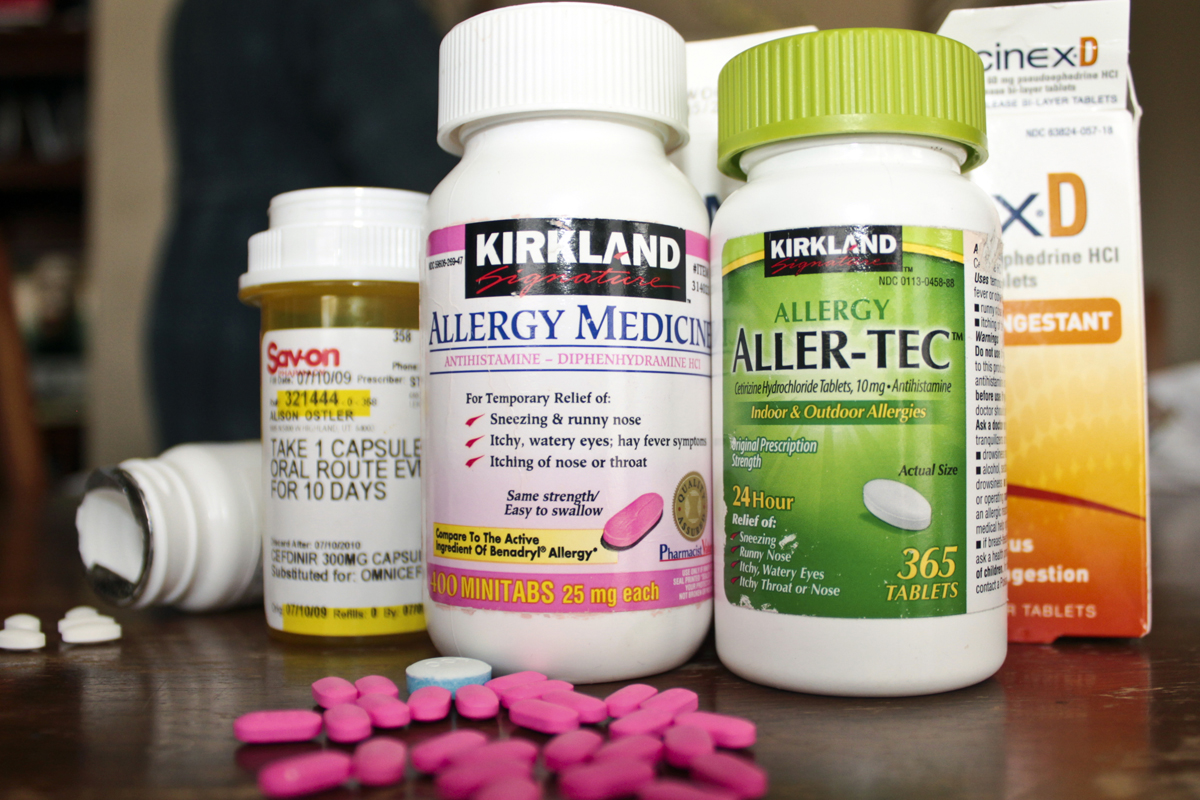‘Tis the season of sniffles
As the achromatic days of winter begin to fade, thoughts may turn from preparing for the bitter weather to thoughts of pollen counts and stocking up on tissues and allergy medications.
“Allergies is just part of your immune system. Your body is protecting you from pollen, and is trying to get it out by sneezing, and nose dripping. It’s just an excessive reaction to a minimal stimulus,” said Dr. Jim Davis, director of USU’s Health and Wellness Center.
There are more than 26 million Americans who suffer from seasonal allergies, or an estimated 50 million who suffer from all types of allergies, according to allergies.emedtv.com. Allergies are the sixth-leading cause of chronic disease in the United States and cost the health care system $18 billion annually.
Davis said symptoms can include runny nose, sneezing, watery and swollen or red eyes, nasal congestion, wheezing, shortness of breath, a tight feeling in the chest, difficulty breathing, coughing, diarrhea, nausea, headache, fatigue and a general feeling of misery. These symptoms can occur alone or in combination.
In many cases, allergy symptoms are difficult to differentiate from the symptoms of other disorders and illnesses, such as a cold, a deformity of the nose or food intolerance. For this reason, Davis suggest that allergies be properly diagnosed by a board-certified allergist (a medical doctor specially trained to treat allergies) to avoid the self-administration of inappropriate medications or other remedies.
“My annual fight with allergies is uncomfortable, but it also takes a serious toll on me mentally. It makes me feel unfocused and tired,” said Esther Carson, a freshman majoring in psychology.
According to motherearthnews.com, studies have shown that during their respective allergy seasons, sufferers often experience a general sense of fatigue – especially mental fatigue – and are more prone to feelings of sadness. People who suffer from allergies also are up to 14 times more likely to experience migraine headaches than those who don’t have allergies.
“I mostly just get allergies in the spring. I hate taking medication, though, so I don’t usually do anything about it,” Carson said.
Connor Allred, a sophomore in physics, also suffers seasonal allergies.
“I’ve had symptoms ranging from a continuous, annoying postnasal drip to a full-scale, coughing, sneezing-itchy-eyed allergy attack,” he said.
He said he used to get symptoms as extreme as hives appearing on his skin. He found that a good remedy for this is to put half a cup of baking soda into a warm bathtub and soak for 20-30 minutes. His symptoms have also lessened since he has slept with a dehumidifier in his room and used saline solution more regularly.
“You can make the solution yourself by mixing a teaspoon of salt in a pint of warm, distilled water and adding a pinch of baking soda. After that, bend over a sink and sniff a bit of solution into one nostril at a time, letting it to go back out through the nose or mouth,” he said.
Davis said there are things you can do to urge your allergies away, but there are also ways to prevent the sniffling and sneezing. A few minor lifestyle changes can go a long way toward keeping symptoms under control. He advises students to avoid using window fans to cool rooms because they pull pollen indoors, keep windows closed when driving, take showers more often and limit time outdoors.
“Avoidance of the allergen is the number-one way to prevent allergies from taking over,” he said. “If you’re already suffering from it, there are a lot of antihistamines available, like benadryl, cortoisone. There are also saline nasal sprays and netti-pots, which are also really good for clearing out the sinuses.”
There are also drug-free ways to treat symptoms, should they arise. Davis said that quercetin, found in citrus fruits, onions, apples, parsley, tea, tomatoes, broccoli, lettuce and wine, can help improve symptoms. He advises taking a supplement as well, to build up enough of the compound to prevent attacks.
A German study published in the journal “Allergy,” found that participants who ate foods rich in omega-3 fatty acids, like cold-water fish, walnuts, flaxseed oil, grass-fed meat and eggs were less likely to suffer allergy symptoms than those who didn’t regularly eat these foods.
“Some may need a doctor’s help to find out for sure that pollen is the source of their misery,” Davis said. “If your allergies interfere with your ability to function, if over-the-counter drugs don’t give you relief or if you experience symptoms on a regular basis, you should see a doctor.”
– kmarshall222@gmail.com

